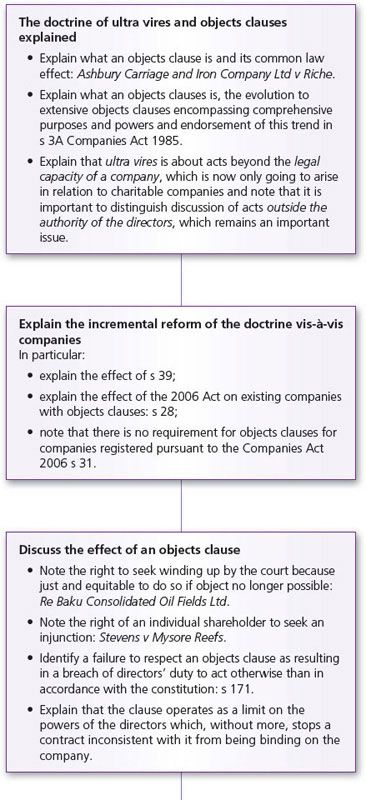The Companies Act 2013, which came into effect in 2014, is the primary legislation in India that regulates the formation, management, and dissolution of companies. Under this Act, shareholders of a company have several rights that are meant to protect their interests and ensure fair treatment.
One of the key rights of shareholders is the right to vote. Every shareholder has the right to participate in the decision-making process of the company by casting their vote at meetings of the shareholders. This includes the right to vote on issues such as the appointment of directors, the approval of financial statements, and changes to the company's articles of association.
Shareholders also have the right to access information about the company. This includes the right to receive copies of the company's annual report, which should include financial statements and a report on the company's performance. Shareholders also have the right to inspect the company's register of members and other documents kept at the registered office of the company.
Another important right of shareholders is the right to receive a share of the company's profits. This is typically done through dividends, which are payments made by the company to its shareholders out of its profits. The amount of dividends that shareholders are entitled to receive is usually determined by the board of directors, subject to the approval of the shareholders.
Shareholders also have the right to sell their shares in the company. This is known as the right to transfer, and it allows shareholders to dispose of their shares in the company if they so choose.
In addition to these rights, shareholders also have certain protections under the Companies Act 2013. For example, the Act requires that the company's directors act in the best interests of the company and its shareholders, and it imposes penalties for directors who breach their duties. The Act also provides for the appointment of independent directors, who are meant to provide an independent perspective on the management of the company and act as a check on the powers of the executive directors.
Overall, the rights of shareholders under the Companies Act 2013 are meant to ensure that they are treated fairly and that their interests are protected. These rights allow shareholders to participate in the decision-making process of the company, access information about the company, receive a share of the company's profits, and sell their shares if they so choose. They also provide protection against directors who breach their duties and ensure that the company is managed in the best interests of its shareholders.
Guide: Restriction on Voting Right under Companies Act 2013

Abstract This objective of this paper is four-fold: firstly, to study the concept of minority shareholders in the light of the Utilitarian Theory of Bentham and the Natural Law Theory; secondly, to analyze the rights of minority shareholders under the Companies Act, 2013 that to what extent these are protected, maintained and regulated; thirdly, to study the implications of the Companies Act, 2013 on the minority shareholders; and fourthly, the judicial approach in protecting the rights and interests of the minority shareholders. Shareholders are essentially proprietors of a firm who benefit from its success. Avenues of Clause 106 This particular clause 106 is applicable in cases of all companies not including One Person Company and Private Companies with conditional subjects to Provisions in Articles of Association the Company concerning Restriction on Voting Right. Further, one-tenth of the shareholders can apply to the government for investigation under section 235 or may move the Court for relief against oppression or mismanagement under sections 397 and 398 but they cannot approach the authorities for taking action unless they have the means to obtain information. It is usually seen that special resolutions are also passed without much.
Shareholder Rights Under the Companies Act

Shyam Sunder Jhunjhunwala, that in an appeal under section 111 3 the dispute relates to the civil rights and in deciding the appeal the Government acts as a tribunal and not as an executive body. Many shareholders, however, are unread of their rights. Â They also can approach the Company Law Board for the conduction of general body meeting, if it is not done according to the statutory requirements. It may be noted that the pre-emptive right is not available to shareholders where the capital of the company is increased by the conversion of debentures and loans into shares as per the exercise of option given in the loan agreement or debentures instrument and the terms are approved by special resolution of the company and by the Government. Whereas, on the other hand, under Companies Act, 2013, the relief from the oppression and mismanagement has been provided under Section 241-246 where the relief can be sought from the tribunal in case of mismanagement and oppression through section 244 1 which provides the right to apply to tribunal with the same minority limit mentioned in Companies Act, 1956 but however, the tribunal, while exercising discretionary powers, may allow any numbers of shareholders and to be considered as minority.
Shareholder Rights under Companies Act, 2013

It, however, needs to be considered whether the proxy should be provided the right to speak in the meeting so that effective control may be exercised hy the shareholders through their agents by asking pertinent questions on the working of the company or the adoption of any resolution. It is not convenient for a shareholder generally to attend the meetings of a company situated at a far away place. However, a private limited company may, by its articles of association, restrict the transfer of shares, and provide preemptive rights to its members for purchasing shares by the transferee. Step 7 Make a receipt of share and application of money. It is mandatory for every Indian company to hold an annual general meeting once in every year. The exceptions given to the shareholders to file a suit on behalf of the company is that where the persons in control of the company do not take steps to enforce the rights of the company, the shareholders as representatives of the company are allowed to sue.
Right Issue of Shares Under Companies Act 2013 & Rules

If there is oppression of the minority of shareholders and mismanagement, a minimum of one hundred members or members holding not less than one-tenth voting power may petition the Court under section 397 and 398 or as an alternative remedy may apply to the Government under section 408. E-Voting E-Voting has been made mandatory for the listed companies with at least 1000 shareholders which indeed will enhance the active participation and offers a platform to the minority shareholders in the management of the company. However, an exemption to this is that a shareholder is liable to pay the company for any amount unpaid on their shares. By investing in the company, they get shares of the company. It is not permissible for a public company or a private company which is subsidiary of a public company to provide any stipulation requiring the lodging of proxy more than 48 hours before the meeting. Rights of Minority Shareholders Many provisions of Companies Act, 2013 deals with the situations where minority shareholders rights have been protected and the same can be divided into various major heads. Right to Apply to the Government to Call Annual General Meeting If default is made in holding an Annual General Meeting in accordance with section 16fl, any member may apply to the Government under section 167, and the Government may give directions for calling, holding and conducting the meeting.







